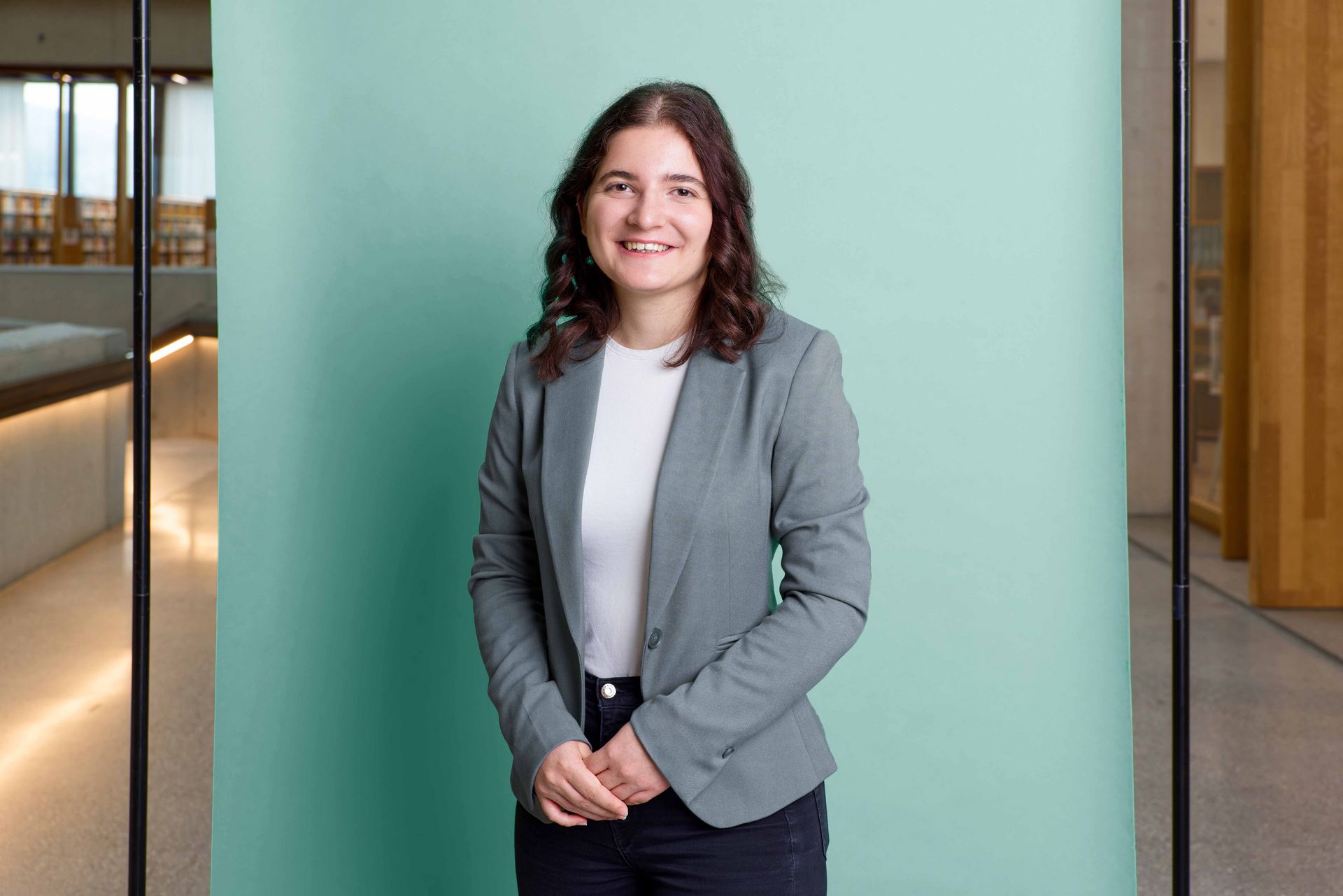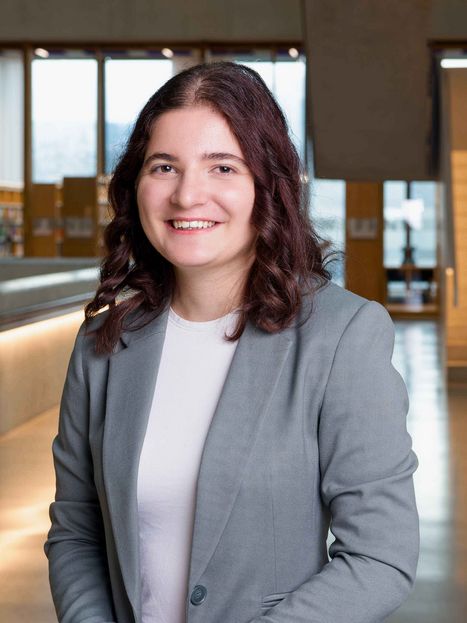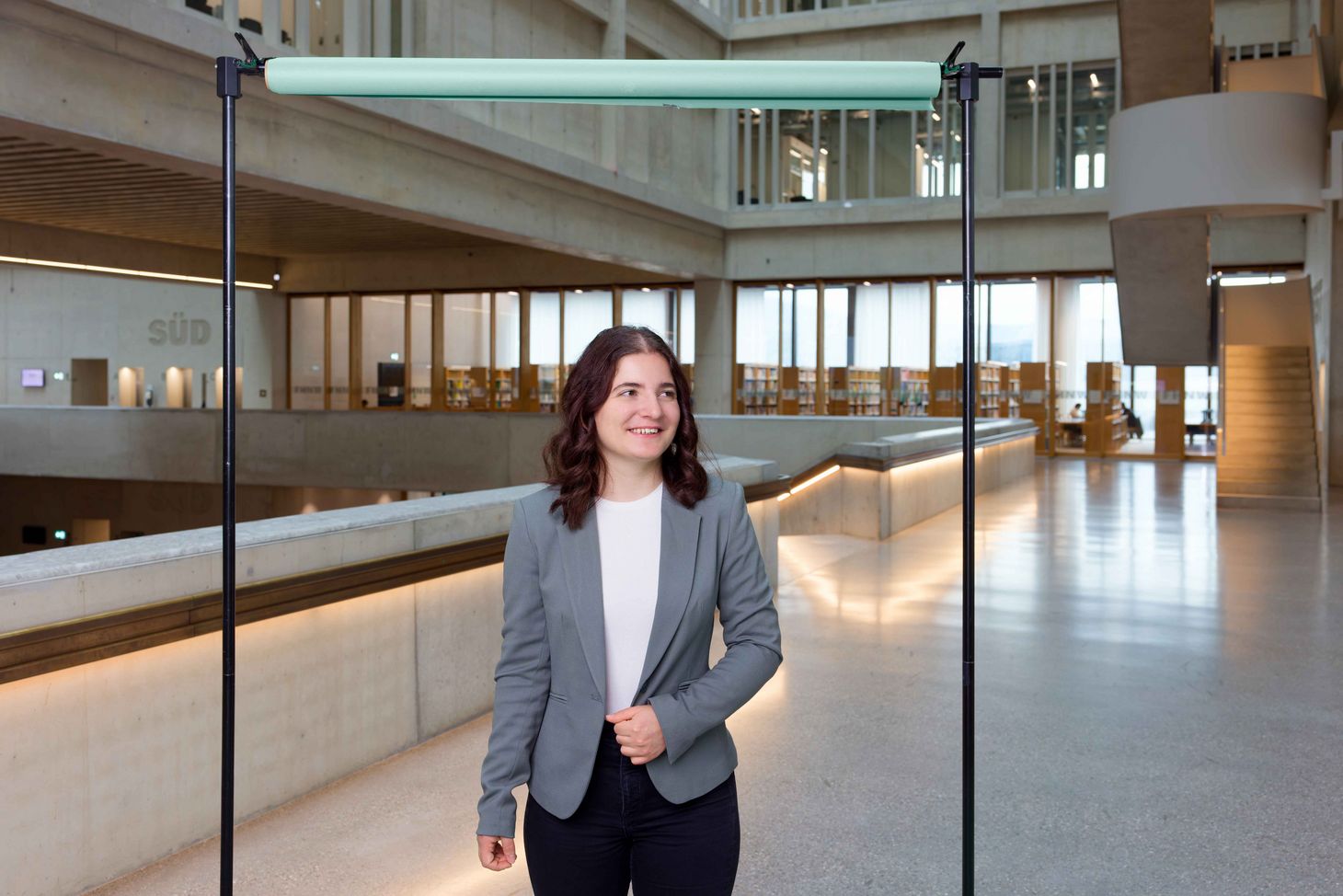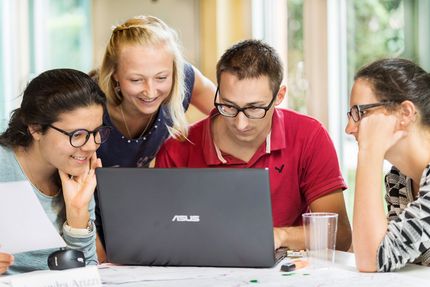
Lab technician who loves research
Samira Künzler has taken an indirect route to the world of research: before beginning a bachelor’s degree programme at the University of Applied Sciences and Arts Northwestern Switzerland, she first completed an apprenticeship as a biology lab assistant. In the meantime, she’s met with so much success that the Swiss Study Foundation presented her with a Werner Siemens Foundation Excellence Scholarship.
In many ways, versatility is the birthright of twenty-two-year-old Samira Künzler. She grew up near the forest in rural Wangen bei Olten, Solothurn, where she developed a fascination for animals, plants and nature in general already as a child. And her parents, who led an architecture and engineering firm, often discussed technical subjects with her. “I still remember my father explaining how sewage systems work,” she says.
At school, Künzler was an excellent student; her only problem was deciding what she wanted to do later in life. She could have gone to the cantonal high school and earned a university entry qualification, but instead opted for an apprenticeship so that she could earn her own money—a decision that may also have been motivated by her father’s death around that time. She tried out several professions: plumbing, carpentry, technical drawing. But because natural sciences were her strongest interest, she applied to the pharmaceutical company Roche as a biology lab assistant—and was offered a place as an apprentice.
Fascinating apprenticeship
At the start, Samira Künzler says, the apprenticeship was very challenging. She was only fifteen, whereas many of her fellow students were older and they had already earned their university-entry qualification—and knew quite a bit more about biology and biochemistry than she did at the time. But she stuck it out and, over time, started enjoying her apprenticeship more and more. She learned how to work with lab animals, administered cell banks, tested food samples during an exchange year at the Basel-Stadt cantonal lab, and looked for evidence of invasive animal species in the Rhine. She says it didn’t take long before she realised she wanted to delve deeper into the world of biology.
This recognition is partly due to the International Biology Olympiad. Although the event is generally for students at cantonal high schools, Künzler relates that her biology teacher at the vocational school gave the class a multiple-choice exam—the first step to qualifying for the competition. Künzler made it to the next round and took part in a preparatory week. It was a fantastic experience, she says, even if she didn’t quite make it to the actual Olympiad: “Everyone there lived and breathed biology. We muscled our way through entire subdisciplines in no time.”

Earning a vocational baccalaureate
Her first job after her apprenticeship was in the main lab of the Cantonal Hospital in Baden, Aargau. “I usually took the evening shift so I could work from 3.00 pm to midnight and study in the mornings.” She was studying to realise her next academic goal, and for that she needed to earn a vocational baccalaureate—which she succeeded in doing. In autumn 2022, she began studying in the bachelor’s programme for bioanalytics and cell biology in Muttenz, Basel-Landschaft, at the University of Applied Sciences and Arts Northwestern Switzerland.
When speaking to Samira Künzler, her deep interest in the questions and topics presented in the programme becomes immediately apparent. From ways antibodies bind to target compounds and where precisely this happens, on to how findings from cell biology can be used to develop new medications and diagnostic methods, or using biomarkers for sepsis and the development of artificial tissues to replace animal testing—she quickly, and effortlessly, rattles off the highly complex topics covered in her studies.
It comes as no great surprise that she completed her first semester with excellent marks—and was invited to apply to the Swiss Study Foundation. Application submitted—application accepted. She admits she hasn’t had much free time to attend many of the Foundation’s events, but when she does have an opportunity, she always enjoys it. “Everyone is very open and willing to help, and I really enjoy meeting other people who share my interest in research.”
More time for her studies
This year, Samira Künzler also received a Werner Siemens Fellowship, which the Swiss Study Foundation grants annually to ten outstanding students in STEM subjects, medicine or pharmaceutical sciences. The fellowships are excellence scholarships that enable ambitious and gifted young people to focus their energies on their education and their personal and professional development.
Künzler greatly appreciates the financial support. After all, she’s been working three different jobs alongside her studies. First, at the hospital in Baden, where she works in the microbiology department of the main lab, mainly at the weekend. Then she has a position in a professor’s lab at the university, where she carries out tasks such as purifying proteins and preparing materials for lab courses. Third and last, she’s also a tutor at the university for first-semester students in a cell biology lab course.
The WSS scholarship means she can now reduce her hours at the hospital. “But I want to keep the other two jobs,” she says. That is, she’ll continue working until February next year, when she’ll be going to the Argentine capital Buenos Aires to research and write her bachelor’s thesis. The project was organised by the degree programme coordinator at her university.
A natural teacher
The topic of her thesis is endometrial carcinoma, or cancer of the uterine lining. Künzler plans to use bioinformatics methods to explore the connections between the disease and epigenetic changes in the genome. The field of epigenetics is concerned with how our environment, habits or lifestyle can change gene activity. It’s a key field, as altered gene activity can promote the development of some cancers.
Samira Künzler’s professional future largely depends on how well she likes her work in Buenos Aires. But one way or another, she plans to continue her studies and pursue a master’s degree, even if the precise subject—and university—are as yet unclear. “I’m interested in many things,” she says. “Right now, it’s mainly areas where cell biology, biochemistry and computer science meet.” And so it’s very possible that she’ll decide to earn her master’s degree in computational biology and bioinformatics.
She also says her long-term goal is to work in research—and that not only because of her fascination for unanswered research questions. “I’m also interested in teaching,” she explains. As a tutor for cell biology, she’s always excited when she can explain things to students so that they can build on their knowledge. In short, Samira Künzler has everything it takes for a brilliant career in teaching and research.

